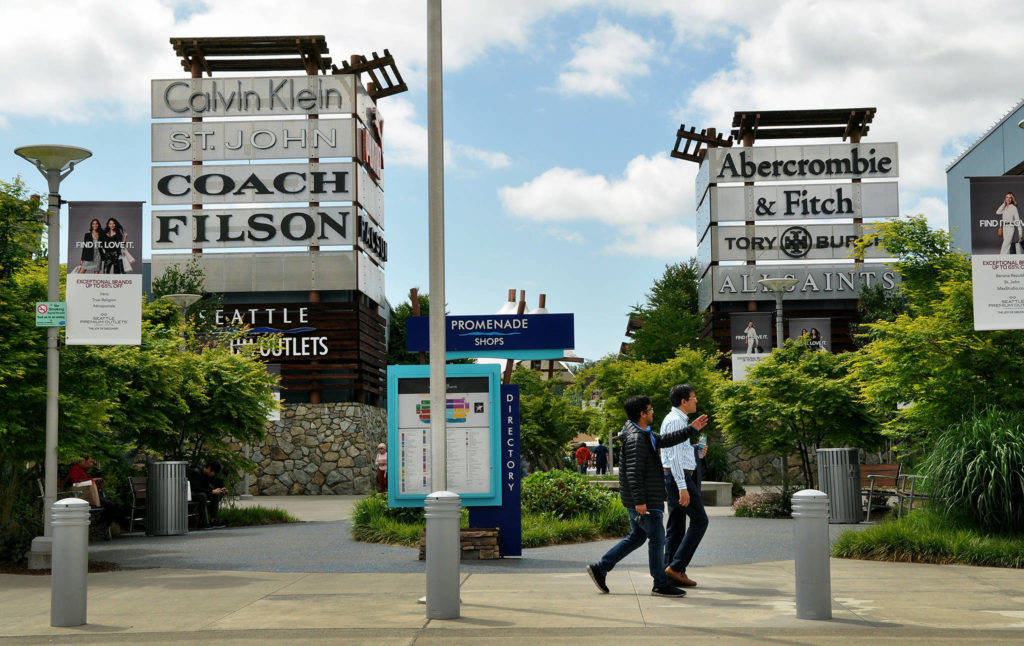SEATTLE — A federal judge ruled Thursday in favor of the state of Washington and Snohomish County in a lawsuit over the right to collect sales tax at the Tulalip Tribes’ Quil Ceda Village shopping area.
About $40 million or more in annual taxes was at stake in the long-awaited ruling.
“The judge dismissed the entire case and ruled in favor of the defendants, so it’s huge win for the state and the county,” said Jason Cummings, Snohomish County’s chief civil deputy prosecutor. “I want to give a heartfelt thanks to the lawyers who were involved. They put in countless hours to help the county preserve its tax base.”
An eight-day trial unfolded in May at the federal courthouse in Seattle. The U.S. government joined the case to support Tulalip’s argument as plaintiffs.
U.S. District Court Judge Barbara Jacobs Rothstein issued a 23-page opinion that addressed case law and tribal sovereignty.
“The taxes at issue are not taxes on tribal businesses, on tribal goods, on tribal members, or on tribal government,” she wrote. “These taxes have interfered only, as the court has already observed, with the Tribes’ ability to collect the full measure of its own taxes at Quil Ceda Village. Not a single modern case has found an infringement of tribal sovereignty under similar circumstances.”
Rothstein cited expert witnesses who attested to the Tulalip tribal government’s ability to achieve financial success, through activities such as gaming and commercial leases, without fully taxing transactions on its land.
The tribes filed the lawsuit in 2015.
Tulalip Tribal Chairwoman Marie Zackuse learned of the outcome early Thursday afternoon.
“We are still reviewing the decision, but we are extremely disappointed in the result,” she said. “We will be evaluating all of the options moving forward and will be meeting with our legal team tomorrow.”
The upcoming discussion will include potentially appealing the decision, Zackuse said.
The suit sought to stop the state and county from collecting sales tax at Quil Ceda Village. The village consists of 2,100 acres, with shops, a resort and a casino, but no homes. It’s overseen by a governing council appointed by the Tulalip Board of Directors. It shares revenues with Tulalip tribal government and the organization that oversees casinos and other Tulalip gaming activities.
Major shopping attractions include Seattle Premium Outlets, Cabela’s and Walmart. An estimated 50 percent or more of the outlets’ customers are believed to travel there from the other side of the U.S.-Canada border.
Tribal leaders viewed the case as a matter of claiming rightful sovereignty over their land. Their legal complaint claimed the state and the county “contributed little towards the infrastructure or services underpinning the Village economy, and the services they do provide are either paid for through other taxes or by Tulalip itself.”
Most of the sales tax flows to the state’s general fund, but a legal defeat for Snohomish County also would have had big financial implications.
“It’s a huge relief because in the worst case we could have lost $7 million in revenue, which equates to about 70 people (on county staff),” County Executive Dave Somers said. “It’s been hanging over us for quite some time. We’re looking forward to working with Tulalip on a number of issues of mutual interest.”
Those include battling the opioid crisis, restoring threatened salmon populations and regulating land use, he said.



